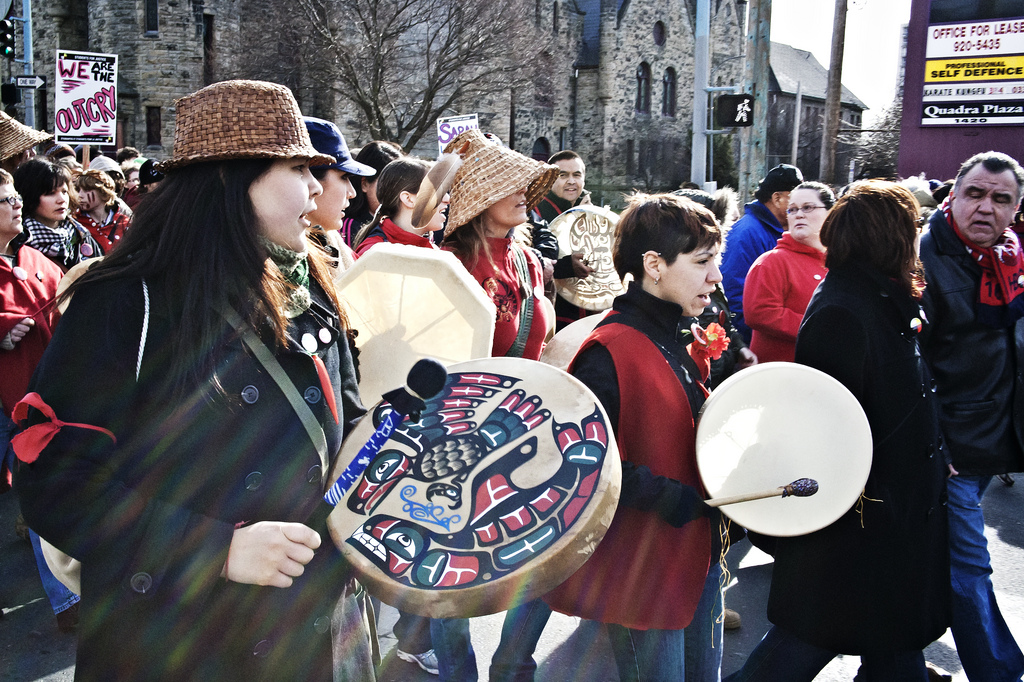Yes, it is true that we have had many inquiries into issues that can be viewed as relating to the missing and murdered Indigenous women, and those inquiries produced a heap of recommendations, many of which were never implemented.
Yes, inquiries are expensive. But not addressing entrenched societal problems? Much more expensive.
Those that have written in opposition to the call for a national inquiry have helpfully illustrated precisely why one is needed. Their sheer ignorance in the face of the problem could not better state the point: the deeply engrained attitudes and beliefs in this country that “Aboriginal issues” are something that Indigenous peoples should just “get over” contribute to the climate that allows a colossal number of Indigenous women and girls to disappear or to be murdered.
As for those who are tired of hearing that colonialism is a root cause of the issue, imagine how tiring it would be to hear that we as a society simply do not care to find out why your mothers, daughters, aunties and sisters are subjected to extreme violence at a disproportionate rate.
Canadians like to think of ourselves as a just and peaceful people, as human rights defenders, as the ‘good guys’. We don’t like to look at the ugly truths of racism and sexism reflected by the terrifying and callous devaluation of Indigenous women’s lives.
A properly run, properly funded national inquiry has the potential to teach us about not only the causes of the violence, but also how to prevent it from recurring.
If we do have a national inquiry, two critical institutional design factors must be heeded: leadership and process.
First, an effective commissioner must have vision, courage and compassion, and exhibit qualities of integrity, fair-mindedness, independence and a commitment to openness and transparency. The person must be respected and command the attention of the broader community, not just a subset of it, in order to ensure that the inquiry can fulfill its pedagogical potential. This may seem an obvious point, but its importance cannot be overstated.
Second, an inquiry must have a process that lends strength to its work, engages the broader community and creates knowledge and understanding through its very operations, so that the result needed is being achieved well before the report is even written and the recommendations made.
An inquiry process will be effective if it has a clear media strategy, engages the public, holds public hearings that are not “lawyer-driven,” tries to conduct them in the witnesses’ first languages, goes to their communities, has different types of hearings (institutional, community, expert, etc.), provides opportunities for civil society engagement, welcomes independent research and makes it clear that all the evidence that it hears will be valued.
An inquiry that creates social accountability for the issue before it will have enormous value, making it less likely that the report will end up on a shelf.
While I support the calls for a national inquiry, it is critical to choose the right commissioner(s) for the job, and to shape the terms of reference so as to enable a meaningful inquiry to proceed, or risk the inquiry becoming a wasteful, frustrating, missed opportunity.
Will a government that does not acknowledge the sociological underpinnings of this crisis be capable of appropriately shaping the inquiry that this issue needs and deserves?
While we press for a properly funded, intelligently mandated, credibly led inquiry to materialize, other approaches to the issue (such as a national roundtable, the community-based initiatives by families of the missing and murdered, proper criminal investigations, implementation of earlier recommendations, etc.) should also be valued and supported, as there is room for a multi-faceted set of solutions to this issue.
We must also educate ourselves on the work that has been done, and commit to supporting the work that must come, to name, understand and challenge violence against Indigenous women.
Finally, we must not forget that all this talk about inquiries arises from the loss of well over a thousand women, each of whom should be honoured as a human being with a family, a life and the right to live without violence.
If we are to be the country that we like to think of ourselves as being, we have work to do.
Kim Stanton completed her doctoral dissertation at the University of Toronto Faculty of Law on truth commissions and public inquiries, and has published scholarly articles on the Canadian Truth and Reconciliation Commission, the Mackenzie Valley Pipeline Inquiry, and the BC Missing Women Commission. She is the Legal Director of LEAF (which has supported the call for a national inquiry for the missing and murdered Indigenous women).
Image: Flickr/glassghost




